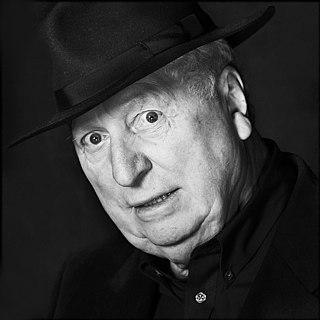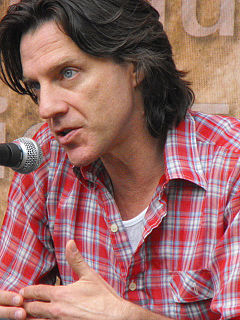A Quote by Archimedes
Eureka! Eureka!
Supposed to have been his cry, jumping naked from his bath and running in the streets, excited by a discovery about water displacement to solve a problem about the purity of a gold crown.
Related Quotes
Archimedes said Eureka, Cos in English he weren't too aversed in, when he discovered that the volume of a body in the bath, is equal to the stuff it is immersed in, That is the law of displacement, Thats why ships don't sink, Its a shame he weren't around in 1912, The Titanic would have made him think.
The man who is striving to solve a problem defined by existing knowledge and technique is not, however, just looking around. He knows what he wants to achieve, and he designs his instruments and directs his thoughts accordingly. Unanticipated novelty, the new discovery, can emerge only to the extent that his anticipations about nature and his instruments prove wrong... There is no other effective way in which discoveries might be generated.
I was working with these very long-chain ... extended-chain polymers, where you had a lot of benzene rings in them. ... Transforming a polymer solution from a liquid to a fiber requires a process called spinning. ... We spun it and it spun beautifully. It [Kevlar] was very strong and very stiff-unlike anything we had made before. I knew that I had made a discovery. I didn't shout "Eureka!" but I was very excited, as was the whole laboratory excited, and management was excited, because we were looking for something new. Something different. And this was it.
The creative act always requires a stepping back. It's called the incubation period. The incubation period - one of the four phases of creativity - is when you're not consciously thinking of a problem, and you're letting it marinate. So this is why you hear time and again, people saying they had that "Eureka" moment in the bath, like Archimedes, or in the shower, or while going for a walk or in a coffeehouse.
I remember from my school days Archimedes jumping into his bath and displacing water and coming up with his famous principle, and of course Isaac Newton being hit on the head with an apple. In other words, this realm of human knowledge - which is mathematical, essentially - can have a playful visual element to it.
It's difficult to talk about [W.S.] Merwin's poems, as it's hard to talk about a feeling or a smell. It is what it is, but so much so that it overwhelms both sense and the senses. I aspire to something about his work, that imbues his poems, though I'm not sure I could say what that is. A purity, maybe, the kind of purity that comes from being beaten, like steel.






































